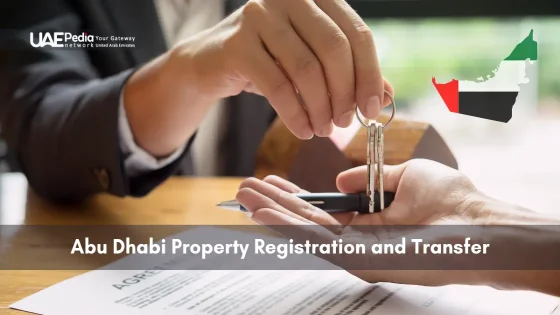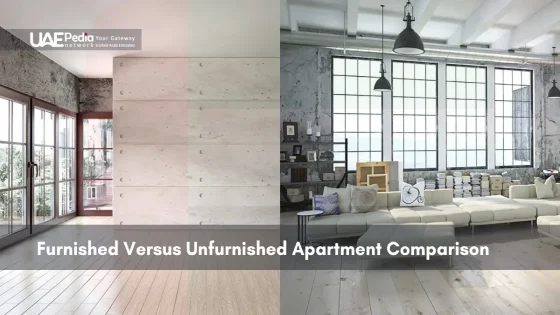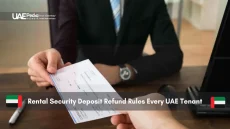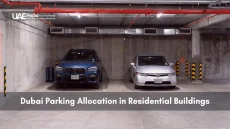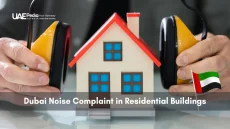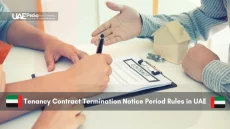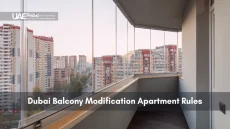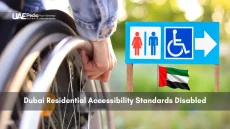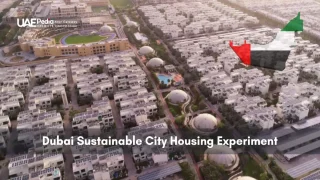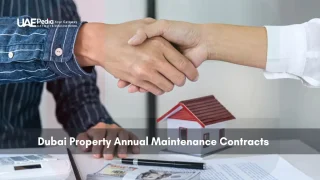Did you know 93% of real estate transactions in the UAE’s capital now start online? Gone are the days of endless paperwork—today’s process blends tradition with tech, creating opportunities as vast as the desert horizon.
Whether you’re securing a waterfront apartment or passing ownership of a family villa, this guide walks you through every step. We’ll explore how platforms like DARI and TAMM simplify legal requirements while honoring local customs. No jargon, just clear maps for your journey.
You’ll learn how digital tools speed up approvals, what documents protect your interests, and why timing matters in this fast-paced market. We’ve even included tips for avoiding common delays—shukran in advance for smoother transactions!
Abu Dhabi’s property registration transfer process is fully digitized through platforms such as DARI and TAMM, requiring only an Emirates ID, a notarized sales agreement, and a No Objection Certificate (NOC) from the municipality. Users submit scanned documents via an online dashboard, track application stages through color-coded alerts, and receive SMS confirmations at each milestone. Developer, bank, and municipal verifications proceed in parallel, typically completing title issuance within 48–72 hours.
Transfer fees range from 1 % to 4 % of the sale price, with off-plan purchases often eligible for reduced rates; mortgage registration incurs an additional 0.1 %–0.25 % of the loan amount, and administrative charges apply for rapid service options. All stakeholders must verify that title deeds match Emirates ID details and that service charges are settled. Compliance with the 1985 Federal Civil Transactions Law and local regulations is enforced via digital dispute portals and mediation committees, ensuring full disclosure of property details before final registration.
- Modern platforms replacing traditional paperwork
- Essential steps for buyers, sellers, and investors
- Up-to-date fee structures and legal checkpoints
- Cultural insights that build trust in negotiations
Understanding the Abu Dhabi Property Registration Process
Navigating ownership changes here feels like following a well-marked desert trail—ancient pathways now dotted with digital signposts. Let’s unpack how traditional wasta (influence) meets cutting-edge tech to create one of the Gulf’s most efficient systems.
From Handshake to App Notification
Imagine starting with coffee and contracts at a developer’s office. Today, that ritual gets turbocharged through platforms requiring just three essentials: your Emirates ID, contract copies, and clearance proof. Once submitted, watch approvals cascade like dominos—developers verify project status, banks greenlight finances, and municipalities stamp ownership rights.
Your Digital Co-Pilot
Platforms like DARI act as your transaction dashboard. After logging in, you’ll:
- Upload notarized agreements
- Track review stages through color-coded alerts
- Receive SMS confirmations at each milestone
One user described it as “WhatsApp for homeownership”—real-time updates replace anxious waiting. When all parties approve, the system generates your tasjeel (registration) certificate automatically. No more chasing papers across government offices!
This blend of tradition and innovation keeps the market moving faster than a falcon in dive mode. By understanding these steps, you’re not just buying space—you’re securing a slice of tomorrow’s skyline.
Read More:
Pre-Transfer Documentation and Preparation
Gathering your paperwork for a real estate handover feels like packing for a desert expedition—every item must prove its worth under the scorching sun of bureaucracy. Let’s unpack the essentials that’ll keep your transaction moving like a well-oiled dhow sailboat.
Essential Documents & Clearance Certificates
Start with the basics: Emirates ID copies (both parties), a stamped sales agreement, also a No Objection Certificate from the municipality. Getting that golden NOC involves submitting a formal request through the Abu Dhabi Municipality portal—expect a 3-day turnaround if your plan documents are current.
Owners living abroad need a notarized power attorney. One expat shared: “My cousin in London used DARI’s e-attestation feature—saved him a flight!” Always check land plan dates—expired ones (older than 6 months) trigger re-surveys that can delay approvals.
Developers and banks play gatekeeper here. They’ll verify:
- Title deed matches the seller’s ID
- Service charges are settled
- Construction complies with the latest certificate
Pro tip: Create a digital folder with labeled PDFs—agreement drafts up front, clearance papers last. Double-check every signature matches Emirates ID names. When banks and developer teams greenlight your file? That’s when you’ve truly earned your shukran smooth transfer!
Steps for Abu Dhabi Property Registration Transfer
Swiping through ownership transfer steps feels like unlocking your smartphone—a few precise taps reveal hidden power. The DARI app transforms complex legal processes into intuitive workflows, letting you manage transactions faster than ordering a karak chai. Let’s explore how to navigate its features like a pro.
Initiator Steps on the DARI App
Start by logging in with your UAE Digital ID—think of it as your golden ticket. Once inside:
- Select “Ownership Transfer” under services
- Input the contract number linked to your account
- Enter mortgage details (if applicable)
- Upload scanned documents using the “Attach” button
- Review application data using preview mode
One user compared it to “building IKEA furniture with clear instructions”—every click has purpose. Miss a field? The app highlights gaps in orange, saving you from rejection loops.
Involving Mortgage and Bank Procedures
Handling bank approvals used to feel like herding camels. Now, DARI automates the service:
- Select your bank from the dropdown menu
- Input mortgage share percentages
- Trigger automatic notifications to lenders
Roles shift seamlessly—after the buyer confirms details, the developer verifies project status. Banks then review financials through integrated portals. “It’s like passing a baton in a relay race,” shared a recent user. Final approval from the municipality arrives via SMS, often within 72 hours.
Pro tip: Double-check Emirates ID numbers against contracts. A single digit typo can delay the process longer than a sandstorm delays desert travel. With DARI’s guided prompts, you’ll navigate each step with the confidence of a local souq trader.
Insights on Fees and Charges in the Abu Dhabi Market
Navigating costs here feels like haggling in a bustling souq—every dirham counts, but smart buyers know where to invest. Let’s decode what’s behind those percentage signs and hidden line items.
Breaking Down the Basics
Registration fees typically range from 1% to 4% of the sale price. For a AED 2 million villa, that’s AED 20,000 to AED 80,000. These percentages often drop for off-plan purchases—one developer recently offered 1% deals to attract investors.
Mortgage registration adds 0.1% to 0.25% of the loan amount. Title deed processing? Budget AED 500 to AED 2,000 depending on service speed. “We saved AED 1,200 using DARI’s express option,” shared a recent buyer.
Beyond the Obvious Costs
Agency commissions (2%-5%) and valuation fees (AED 2,500-7,500) sneak up on first-timers. Municipal charges add AED 10,000-15,000 for utilities and permits. Watch for:
- Developer admin fees (often 1% of contract value)
- Bank processing charges (AED 2,000-5,000)
- Translation services for foreign documents (AED 150/page)
Market trends play referee here. During high-demand periods, some agencies charge premium rates—like the 7% commission we saw during Saadiyat Island’s latest project launch. Pro tip: Always request fee breakdowns in writing before signing anything.
Utilizing Digital Solutions for a Smooth Transaction
Clicking through ownership updates now feels like streaming your favorite show—instant access, no commercials, plot twists handled in real time. Abu Dhabi’s digital platforms turn complex legal steps into seamless experiences. Let’s explore how two key systems simplify transferring property ownership while keeping your sanity intact.
DARI vs. TAMM: Your Digital Dream Team
DARI acts like a specialized GPS for property transfers—every feature built for this specific journey. Upload documents through its drag-and-drop interface, pay fees via linked cards, and track approvals through push notifications. One user raved: “It’s like having a lawyer in my pocket!”
TAMM serves as the government’s all-in-one hub. While DARI focuses on real estate, TAMM handles broader services—renewing visas, paying utilities, and initiating title updates. Its chat support guides newcomers through each step, perfect for those juggling multiple transactions.
Both platforms slash processing times dramatically. DARI users report 48-hour turnarounds for straightforward cases. TAMM’s auto-fill feature pulls your existing data—no more retyping Emirates ID numbers. “I completed three steps during my morning coffee break,” shared an expat investor.
First-time users appreciate the visual guides. Color-coded progress bars show exactly where your application stands. Miss a document? The systems flag it with friendly alerts, not bureaucratic red tape. Even better—no more waiting in line at government offices.
These tools don’t just speed things up. They create transparency by storing every interaction—payment receipts, approval timestamps, even dispute records. Whether you’re tech-savvy or smartphone-shy, Abu Dhabi’s digital revolution makes transferring ownership feel like sending a text message. Simple. Secure. Surprisingly satisfying.
Navigating Legal Frameworks and Regulatory Compliance
Untangling legal frameworks feels like training a falcon—precision meets patience, with clear rules guiding every move. Abu Dhabi’s system blends federal laws with local wisdom, creating safety nets for buyers and sellers alike. Let’s decode how these protections work in practice.
Understanding Key Laws and Regulations
The 1985 Federal Civil Transactions Law acts as your foundation stone. It requires full disclosure of land details and defects before signing any agreement. One clause states: “The seller must reveal hidden flaws—like undisclosed mortgages or structural issues—or face penalties.”
Local regulations add extra layers. Developers must register projects with the Department of Municipalities and Transport. Buyers receive verified contract copies through secure portals. For a complete roadmap, explore our guide to the UAE land ownership process.
Managing Disputes and Handling Defects
Found cracks in walls post-purchase? The law gives you 12 months to request repairs from the owner or developer. Most conflicts resolve through mediation committees—think of them as souq negotiators with legal authority.
When disagreements arise:
- Submit evidence via TAMM’s dispute portal
- Attend a municipal hearing within 21 days
- Appeal decisions through Abu Dhabi Judicial Department
A legal advisor shared: “Document everything—WhatsApp messages about leaky pipes count!” Always cross-check your deed against municipal records before final payments. This vigilance turns potential headaches into mere speed bumps.
By mastering these frameworks, you’re not just following rules—you’re weaving your own safety net in the dynamic world of real estate. Knowledge here shines brighter than a desert sun at noon.
Final Considerations for a Successful Property Ownership Transfer
Completing your real estate journey here resembles solving a palm-shaded puzzle—each piece clicks when placed with care. Let’s ensure your final steps shine like polished sadou weaving.
Start strong: Verify every digit in your documents matches official records. Double-check fee calculations against municipal portals—even small errors can ripple through approvals. New owners often share: “Screenshot each confirmation—they’re golden when tracking progress!”
Lean on digital tools for real-time updates. Platforms like DARI send alerts when banks confirm payments or developers approve details. One buyer noted: “Seeing the title deed status change felt like watching sunrise over the Corniche!”
Before signing off, walk through these final checks:
- Confirm all service charges are settled
- Validate the deed against land department records
- Save digital and physical copies of clearance certificates
When uncertainties arise, consult licensed advisors—they’re the compasses in complex cases. Remember, thorough preparation turns what-ifs into “shukran, all set!” moments.
You’ve now got the map to navigate ownership changes smoothly. Whether you’re passing keys to a new owner or claiming your slice of the skyline, trust these steps to guide your way. Here’s to your next chapter in this ever-evolving market—may it unfold as brilliantly as a desert night’s first star.
Most transfers wrap up within 5-7 working days if documents are ready and no disputes arise. Using platforms like DARI or TAMM can speed things up by letting you track progress in real time—think of it like checking a delivery app, but for your new home!
You’ll need the original title deed, valid Emirates IDs, a sales agreement, and a No Objection Certificate (NOC) from the developer. If the property is rented, an Ejari contract adds extra smoothness to the process.
Absolutely! Platforms like DARI handle everything from document uploads to fee payments. For government-backed services, TAMM acts as your digital helper—like having a real estate genie in your phone.
The 2% fee (based on the sale price) is the main player, but don’t forget supporting actors: agency fees (around 2%), valuation charges (AED 2,500-5,000), and AED 350 for the title deed print. Always request a detailed breakdown upfront.
Banks must clear the mortgage before transfer—this is your red flag to coordinate early. Some lenders offer loan porting options, letting you shift the mortgage to the buyer like a financial baton pass.
Law No. 3 of 2015 is your safety net. It mandates transparent contracts, defect disclosures, and a 12-month liability period for developers. For disputes, the Abu Dhabi Judicial Department steps in faster than a falcon dive.
Developers must fix structural issues within a year. Document everything and file a claim through the Abu Dhabi Municipality portal—they’re stricter than a desert sunset deadline!
